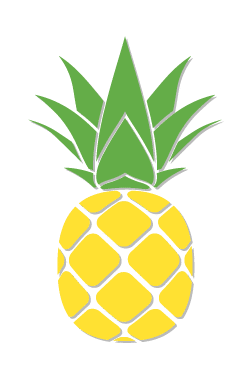We have all heard the term “you are what you eat”, but have you heard that “you feel what you eat”. This goes for your kids too! If you are having behavior issues, sleep issues, anxiety, or depression, these can be traced back to diet; yes, even ADHD. Lets talk about the brain’s needs:
Dr. Stephen Pratt MD, Author of Superfoods RX: Fourteen Foods Proven to Change your Life calls Blueberries “Brainberries” for their ability to protect the brain from Oxidative Stress-the breakdown of enzymes the brain uses to detoxify itself from free radicals which can cause the brain to not heal itself which can lead to diseases of the brain. For more information on Oxidative Stress please visit http://www.news-medical.net/health/What-is-Oxidative-Stress.aspx.
Wild salmon is second on the list for its Omega-3 essential Fatty Acids which are essential for brain function and are said to have anti-inflammatory properties says Dr Ann Kulze MD, author of Dr. Ann’s 10 Step Diet: A Simple Plan for Permanent Weight Loss & Lifelong Vitality.
Blueberries: “Brainberries”- Protective against Oxidative Stress (the breakdown of enzymes that heal the brain from free radicals, which can lead to brain diseases such as Alzheimers and dementia
Wild Salmon: High in Omega 3 essential Fatty Acids for brain function; also high in anti-inflammatory properties
Nuts and Seed: Vitamin E needed for Cognitive (thinking) function: Try Walnuts, hazelnuts, Brazil Nuts, filberts, almonds, cashews, peanuts, sunflower seeds, sesame seeds, flax seed, and un-hydrogenated nut butters such as peanut butter, almond butter, and tahini.
Avocados: “Almost as good as blueberries in promoting brain health” says Pratt, yes it is high in mono-saturated fat, but that contributes to healthy blood flow which we know every organ in our body is dependent on blood supply, most importantly, the brain. According to Pratt, avocados lower blood pressure which can increase cognitive function and promote brain health. Because of the fat and caloric content, ¼ to ½ of an avocado is the recommended daily serving according to Dr. Ann Kulze.
Whole Grains: Oatmeal, whole grain breads and brown rice can reduce the risk of heart disease. Hence, increased cardiovascular health=increased blood flow=healthy brain. Wheat germ in not a whole grain however it is high in fiber, contains vitamin E (cognitive function), and Omega 3’s.
These are just a few of the “superfoods” that create our brain development and protect it from deterioration. Our guts and our brains are the communication centers of our bodies. When we put healthy and nutritious, non processed foods into our guts, our brains have the power to send out the proper messages and codes to the rest of our body for healthy development and function.
What we feed our children is more important than you may think. If you find yourself handing your child a bag of chips and a corndog, think twice….they may burn the fat, but that’s one less healthy meal to help their brains grow. You might actually see a change in behavior as well. Make healthy choices for yourself and your child.
Now, go on and fuel you and your kids minds with these pancakes. For a family-sized recipe, visit sugarfreemom.com.


